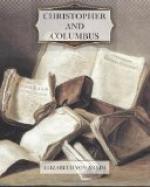For the ten years from his father’s death till he went to Harvard, he lived with his mother and sister and was their assiduous attendant. His mother took the loss of his father badly. She didn’t get over it, as widows sometimes do, and grow suddenly ten years younger. The sight of her, so black and broken, of so daily recurring a patience, of such frequent deliberate brightening for the sake of her children, kept Mr. Twist, as he grew up, from those thoughts which sometimes occur to young men and have to do with curves and dimples. He was too much absorbed by his mother to think on such lines. He was flooded with reverence and pity. Through her, all women were holy to him. They were all mothers, either actual or to be—after, of course, the proper ceremonies. They were all people for whom one leapt up and opened doors, placed chairs out of draughts, and fetched black shawls. On warm spring days, when he was about eighteen, he told himself earnestly that it would be a profanity, a terrible secret sinning, to think amorously—yes, he supposed the word was amorously—while there under his eyes, pervading his days from breakfast to bedtime, was that mourning womanhood, that lopped life, that example of brave doing without any hope or expectation except what might be expected or hoped from heaven. His mother was wonderful the way she bore things. There she was, with nothing left to look forward to in the way of pleasures except the resurrection, yet she did not complain.
But after he had been at Harvard a year a change came over Mr. Twist. Not that he did not remain dutiful and affectionate, but he perceived that it was possible to peep round the corners of his mother, the rock-like corners that had so long jutted out between him and the view, and on the other side there seemed to be quite a lot of interesting things going on. He continued, however, only to eye most of them from afar, and the nearest he got to temptation while at Harvard was to read “Madame Bovary.”
After Harvard he was put into an engineering firm, for the Twists only had what would in English money be five thousand pounds a year, and belonged therefore, taking dollars as the measure of standing instead of birth, to the middle classes. Aunt Alice would have described such an income as ample means; Mrs. Twist called it straitened circumstances, and lived accordingly in a condition of perpetual self-sacrifice and doings without. She had a car, but it was only a car, not a Pierce-Arrow; and there was a bathroom to every bedroom, but there were only six bedrooms; and the house stood on a hill and looked over the most beautiful woods, but they were somebody else’s woods. She felt, as she beheld the lives of those of her neighbours she let her eyes rest on, who were the millionaires dotted round about the charming environs of Clark, that she was indeed a typical widow,—remote, unfriended, melancholy, poor.




